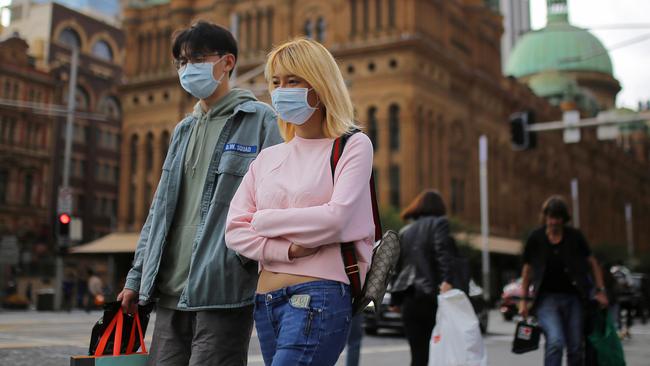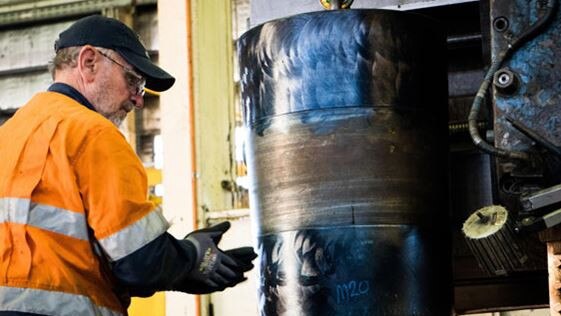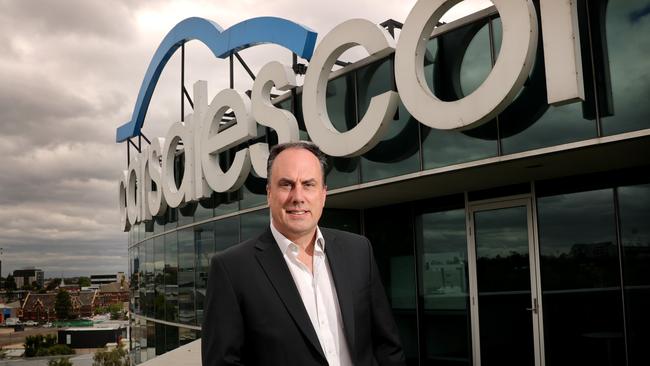JobKeeper cash pocketed as profits roll in
Some of Australia’s largest companies received almost $500m in JobKeeper money in the past six months, with many choosing not to hand it back.

Some of Australia’s largest companies have received almost $500m in taxpayer money under the JobKeeper scheme in the past six months, with many choosing not to hand the money back to the government while booking profits and paying out dividends.
An analysis of ASX 200 companies that have delivered results in the most recent reporting period shows that $486.1m has been paid out under the government’s flagship wage subsidy scheme.
And although a string of companies have voluntarily elected to repay the government, at least 16 JobKeeper recipients that booked a profit or paid dividends have refused to hand the money back or stayed silent on the subject.
It is a stark contrast to companies such as Cochlear and Collins Food, which have pledged to repay $23.1m and $1.8m of JobKeeper respectively. Others who have pledged to repay the funds include Super Retail Group, Domino’s Pizza and Nick Scali.
The JobKeeper program has stoked increasing tension across corporate Australia. The scheme was put in place as a temporary measure to protect jobs as the economy was cratering when the COVID-19 shock started to take hold in March last year. But a faster-than-expected economic recovery and surging profits among some recipients has raised suggestions as to whether the program should be treated as a low-cost loan. While the JobKeeper subsidies are passed onto staff, it has the effect of substantially lowering a company’s wages bill.
Cochlear CEO Dig Howitt said he considered “returning the COVID government assistance payments the appropriate thing to do”.
Collins Food CEO Drew O’Malley told The Weekend Australian that repaying the benefit when it was not needed was keeping in spirit with the program.
“There wasn’t much of a debate at all, there was actually very strong alignment around this, and for us it always came down to what the right thing to do was based on the values of the company and what was the spirit of the program,” he said.
An analysis of corporate accounts by The Weekend Australian shows that across 16 companies, a total of $236.1m in Jobkeeper payments were reported as received in the six months to December 2020 against a collective $1.84bn in profits, while several paid out dividends to investors over and above what they received from the scheme.
One of the largest recipients to still record a profit was Star Entertainment, which received $103m in Jobkeeper payments due to the closure of its casinos. At the same time, Star posted a $51m profit.
Construction giant CIMIC reported a full-year profit of $620m last week and declared a dividend of 20c a share, worth $186.8m.
CIMIC investors also benefited from a share buyback plan worth $281.3m — but certain subsidiary entities of the group received $20m in Jobkeeper payments, which it has not elected to pay back.

“Jobkeeper payments were used as intended to support employment across affected entities during the COVID-19 outbreak,” CIMIC said in its annual report.
Sims Metal Management handed down an increased interim profit of $53m on Tuesday and announced a mid-year dividend of 12c a share, sending $24.2m to shareholders.
But in the six months to the end of December, Sims received $11.8m in Jobkeeper support from the government.
Property listings group Domain was paid $6.5m via JobKeeper in the December half and delivered a $19.4m profit. While Domain, which is 60 per cent-owned by Nine Entertainment, pushed back a decision on whether to pay a dividend, The Australian’s DataRoom column this week named Domain as a contender looking to acquire the $900m-plus stake in Property Exchange Australia.
Solomon Lew’s Premier Investments has come under pressure to repay $68.7m in JobKeeper subsidies after delivering a record $138m profit for the 2020 calendar year.
Elsewhere, 4WD accessories manufacturer and retailer ARB more than doubled its profit to $54m in the same period, announcing to shareholders on Tuesday that it would pay out a dividend worth $23.4m. It received $9.8m in Jobkeeper payments during that time frame.
Gambling giant Tabcorp reported $8m in JobKeeper revenue while booking a $185m profit and declaring a 7.5c-a-share dividend.
Mirvac received $13m while paying out $188m to shareholders via dividends after recording a $276m profit.
Some companies have defiantly argued their right not to repay the government.
Carsales.com CEO Cameron McIntyre, who received $5m in Jobkeeper against a $61.3m profit and $61.59m in dividends paid out, told The Weekend Australian the scheme did for the company “what it was intended to do”.

Grattan Institute CEO Danielle Wood said the government purposefully built the scheme with “wiggle room” due to the extreme uncertainty facing the economy at the outset of COVID-19. “It was seen as better to go big and spray around some extra billions than not big enough and see widespread job losses and business failures,” she said.
“Some businesses no doubt deliberately set out to game the scheme — by shifting revenues or generating unrealistically pessimistic forecasts. But I suspect for many they simply didn’t know how big the impact would be and it just didn’t turn out as badly as expected for some.”
Other large recipients of the scheme include Crown Resorts and Event Hospitality and Entertainment, which received $146m and $41.73m respectively, although both these companies were loss-making.
Ms Wood said the government should have designed the scheme with a “safety valve” in mind as it was doubtful if the government could require individual companies to repay the money if they received it legitimately. “I have a lot of sympathy for both government and businesses here but there probably should have been a safety valve where businesses that got the forecasts really wrong — so that they ended up seeing limited decline or even an increase in turnover — would be asked to pay back the money,” she said.
“If businesses deliberately flouted the rules they should absolutely be required to pay it back and hopefully the ATO is in active enforcement for this group.
“I don’t think the government can require others to pay back if they applied in good faith and according to the rules.
“That said, I think there is an argument they should – it’s not a great look taking taxpayer-funded wage subsidies while making a profit – but individual companies will need to come to their own views.”



To join the conversation, please log in. Don't have an account? Register
Join the conversation, you are commenting as Logout